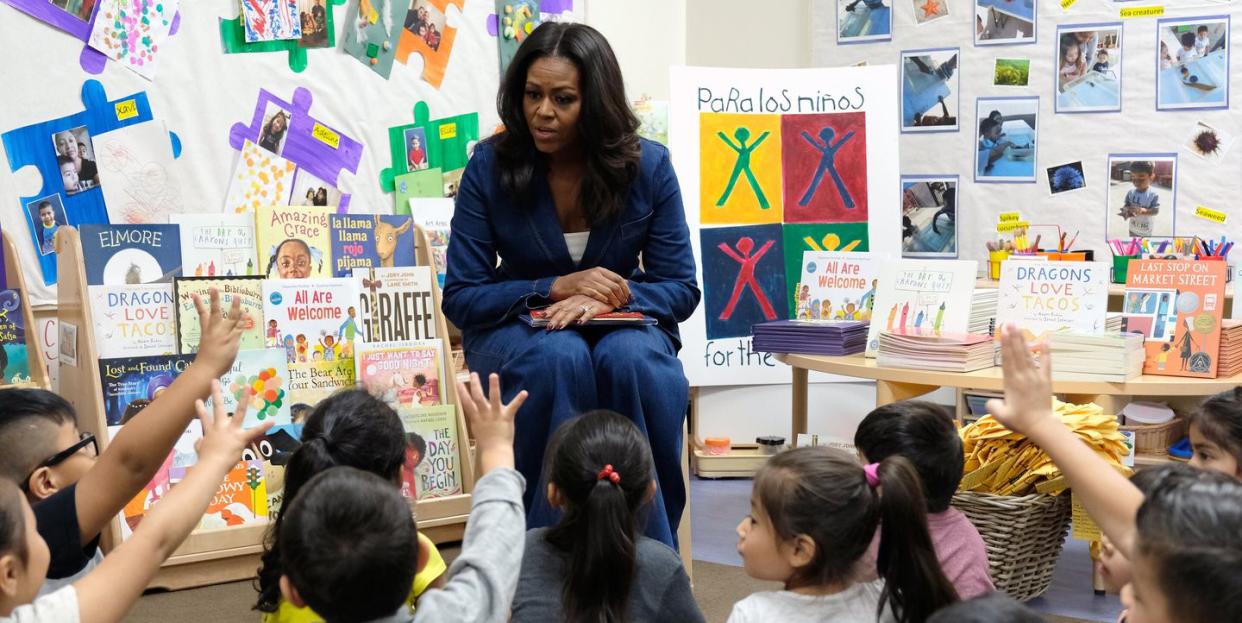What is Black History Month and why do we need it?

The 1st October marks the start of Black History Month, a celebration of the Black experience that is overlooked in British schools. The Eurocentric curriculum does little to highlight Black history beyond slavery, which is disempowering not only to the Black British community to whom it creates a greater sense of not belonging, but also to white school children who are not taught the broader picture of their country's background. In 2021, with so many more aware than ever before of the systemic racism faced by Black people, it feels crucial to acknowledge and support this important celebration.
So, what is Black History Month?
Black History Month celebrates the huge contribution that Black men and women have made to British society. For too long, Black history has been sidelined, ignored, appropriated and misrepresented in the UK and beyond; this month-long celebration recognises the events and people who have shaped and continue to shape our society. Its UK mission statement is: "Dig deeper, look closer, think bigger."
Where and when did it originate?
It started in the US in 1915, half a century after the Thirteenth Amendment abolished slavery. It was founded by a historian called Carter G. Woodson, along with the Association for the Study of African American Life and History (ASALH), and was originally called Negro History Week. It was decided that this annual celebration of Black contributions would take place on the second week of February to coincide with the birthdays of Abraham Lincoln, whose Emancipation Proclamation paved the way for slavery’s abolition, and Frederick Douglass, an escaped slave who became a high-profile activist and orator. The aim was for Black history to be highlighted in US schools.

By the 1960s, the event had expanded to become a month-long celebration, thanks in part to the civil rights movement. In 1976, it was officially recognised as Black History Month by US President Gerald Ford who called on the public to “seize the opportunity to honour the too-often neglected accomplishments of Black Americans in every area of endeavour throughout our history”.
It was only in 1987 that Black History Month was first celebrated in the UK, thanks to the tireless efforts of Akyaaba Addai-Sebo, who was galvanised into action by the identity crisis that Black children faced at the time. October was chosen because it was thought children would be receptive to it at that particular time of year. "We settled on the propitious month of October when the weather was not cold and children were fresh after the long summer vacation and had less to worry about exams and tests and the camaraderie was stronger as they shared experiences," said Addai-Sebo in an interview.
What are the benefits?
Black History Month enables both adults and children to gain a broader understanding of Black histories, going beyond racism and slavery to also spotlight Black achievement. It helps us all to see that Black history is also British history. If you know more about a certain community, it's less likely that you will discriminate against them and it's also harder to ignore the existence of racism when you know about its history. For us to understand where we are, we must understand our past and how we got here, including the events and people who shaped the way Britain stands today.
To learn about Black history is to learn how intertwined it is with our own.
Are there any criticisms?
It has been questioned why a celebration of Black history should be restricted to just one month when it should be recognised all year round - a valid point and one that will hopefully soon be addressed via wider representation within the national school agenda. In 2005, actor Morgan Freeman said during a filmed interview, "You're going to relegate my history to a month? I don't want a Black History Month. Black history is American history."
How can you better educate yourself on Black history?
There a multiple ways in which you can improve your education on Black history. Social enterprise group Black Curriculum has numerous resources that parents can buy to teach their children about key areas of Black history (and to find out more about these issues themselves). Black British History has a comprehensive list of useful links that will help you learn more; Black British Walks offers London walking tours which are each carefully selected for its importance in Black history; or turn to 100 Great Black British Britons, which this year launched learning resources to help teachers and parents doing home school during lockdown. Alternatively, visit Blackhistorymonth.org.uk for detailed listings on events going on in your area, or - for teachings via social media - follow @blackhistory, which shares regular posts about key moments and people.
You Might Also Like


